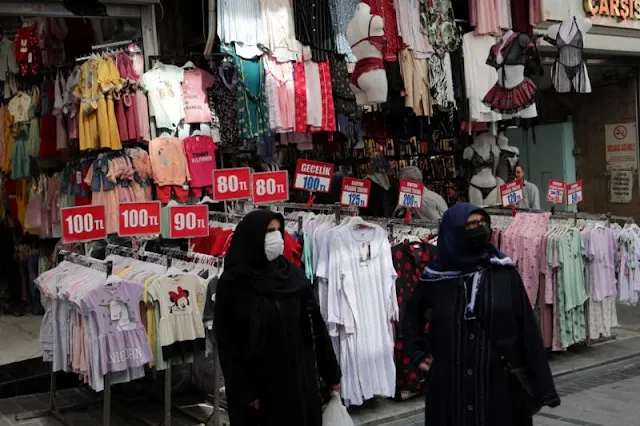According to official data released on Monday, Turkey's annual inflation rate increased to 83.45% in September, a new 24-year high, after the central bank shocked the markets by lowering rates twice in the previous two months.
Since the central bank steadily reduced its policy rate in an unconventional easing cycle long wanted by President Tayyip Erdogan, the lira fell and inflation spiked in the fall of last year.
Consumer prices increased 3.08% month over month, according to the Turkish Statistical Institute, versus a prediction of 3.8% in a Reuters survey. Consumer price inflation was anticipated to be 84.63% yearly.
Since July 1998, when it stood at 85.3% and Turkey was attempting to put a stop to a decade of consistently high inflation, this number has increased annually.
Transport costs, which increased by about 118% from the previous year, were the main driver of September's inflation, while food and non-alcoholic beverage costs increased by 93.05%.
Following the release of the data, the lira fell from its Friday closing of 18.5620 to trade at 18.5620 against the dollar.
Despite the continuing increase in inflation, soaring energy prices, and the lingering effects of the lira's collapse, the bank dropped its policy rate once again in the previous two months by 200 basis points to 12%, defying the trend of the global tightening cycle.
A currency crisis brought on by rate cuts from the previous year caused the lira's value versus the dollar to drop by 44% in 2021. Its decline this year of almost 29% has brought it to new record lows.
Last week’s Reuters poll had shown that annual inflation was expected to decline to 72% by end-2022.
The government has said inflation will fall with its economic programme prioritising low rates to boost production and exports with the aim of achieving a current account surplus.
The domestic producer price index was up 4.78% month-on-month in September for an annual rise of 151.50%.



